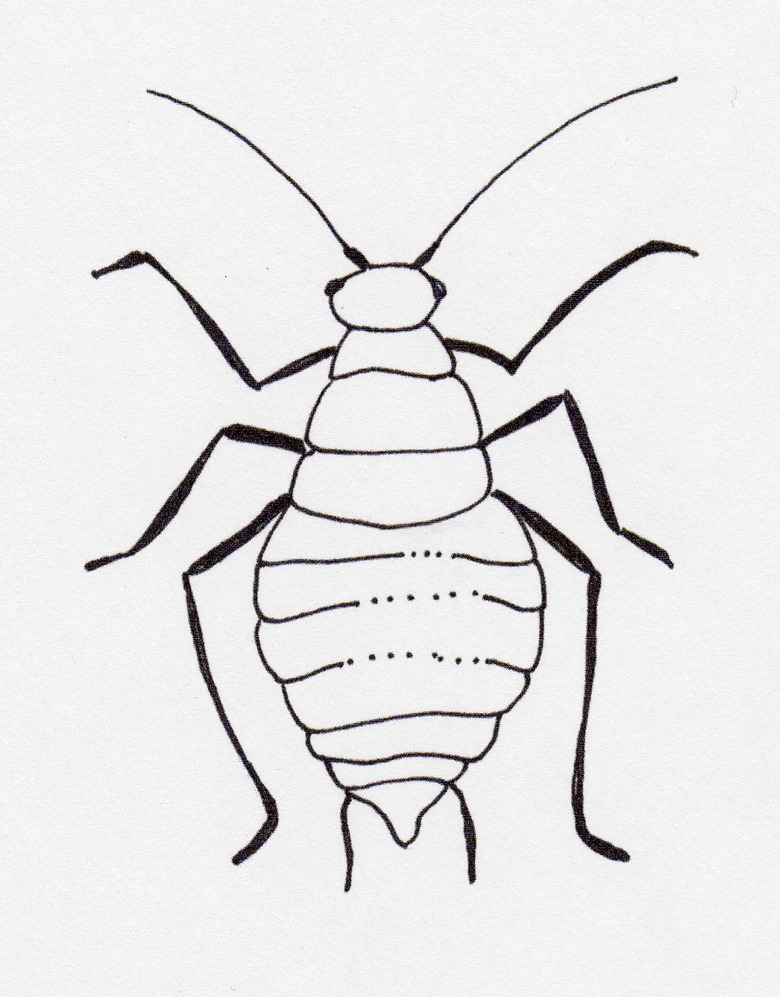How To Stop Bugs From Eating Pepper Plants
Things Needed
- Ivory liquid dish soap
- Water
- Spray bottle
- Sticky traps
- Canola oil
- Garlic
- Tanglefoot
- Ladybugs
- Pollen producing plants
Tip
Healthy plants are more resistant to insect invasions. Avoid using high nitrogen fertilizers (for example, 16-16-16) because they will force new vegetative growth, which only encourages insects to move in. Instead, compost is recommended as mulch that you lay on the ground around the base of your plants. Insecticidal soaps are available commercially under brand names such as "Safer's." You can choose an already-mixed bottle, or purchase concentrated soap that you must mix with water.
Warning
Spraying with chemical pesticides can backfire on your insect control efforts because it also kills beneficial insects that can help to control the invasion naturally.
Growing your own bell peppers, Serrano chilis and other sweet and hot peppers can add a lot of flavor to your meals. Growing your own vegetables also is a great way to teach kids about the wonders of nature and where their food comes from. A variety of insect pests–such as aphids, white flies, spider mites and scale–might attack your plants. Control insects by natural methods to ensure a good harvest.
Step 1
Identify the insect. Aphids are often green and small—no longer than 1/8 inch. Scale look like small armored tanks—when they're mature they stay in the same place on your plant. If you spot ants, that's a sure sign your plants have aphids or scale because the ants "farm" them for a sticky substance they secrete. White flies are readily noticeable because they swarm the plant and cover the undersides of the leaves. Their presence can introduce fungal diseases such as powdery mildew. Spider mites create a webbing effect on plants but are so tiny you'll probably only notice the web.
- Growing your own bell peppers, Serrano chilis and other sweet and hot peppers can add a lot of flavor to your meals.
- Spider mites create a webbing effect on plants but are so tiny you'll probably only notice the web.
Step 2
Mix 1 tablespoon of Ivory Liquid dish soap with 1 quart of water in a spray bottle. Spray your plants liberally with this mixture every couple of days to treat aphids and mites. For resistant armored scale, add 1 tbsp. of canola oil to your soap spray and douse them. If you want, you also can add 1 tbsp. of blended garlic to your spray—hot peppers can also help. You also can "hand pick," or squish, scale.
- Mix 1 tablespoon of Ivory Liquid dish soap with 1 quart of water in a spray bottle.
- of blended garlic to your spray—hot peppers can also help.
Step 3
Hang sticky traps around your pepper plants to catch white flies. You also can use soap spray to get rid of them, but because they're always in the air, spraying all of them is difficult.
Step 4
Control spider mites as soon as you notice any type of webs on your pepper's leaves. Keeping your plant(s) well watered is the first step toward keeping these insects at bay. Spray your affected plants with a sharp stream of water from your hose. Monitor the population after that and if necessary, use your soap spray with canola oil mixed with it. Watch for future problems and repeat these steps as needed.
- Hang sticky traps around your pepper plants to catch white flies.
- Monitor the population after that and if necessary, use your soap spray with canola oil mixed with it.
Step 5
Keep ants off your plants with a product called Tanglefoot. It's very sticky, so when you smear it on the main stem or trunk of a plant, ants simply can't crawl over it and up into your plant.
Step 6
Introduce beneficial insects and pollen plants to your garden area. Different insects eat different plant pests: for example, ladybugs just love aphids. Many beneficial insects exist in nature and you can purchase them for release into your yard. If you grow plants that produce a lot of pollen or nectar, they will naturally attract beneficial insects. Examples of these plants include dill, angelica, mustard, lemon balm, parsley and other herbs. They will also attract honeybees, which your plants need for pollination and fruit production.
- Keep ants off your plants with a product called Tanglefoot.
- They will also attract honeybees, which your plants need for pollination and fruit production.
